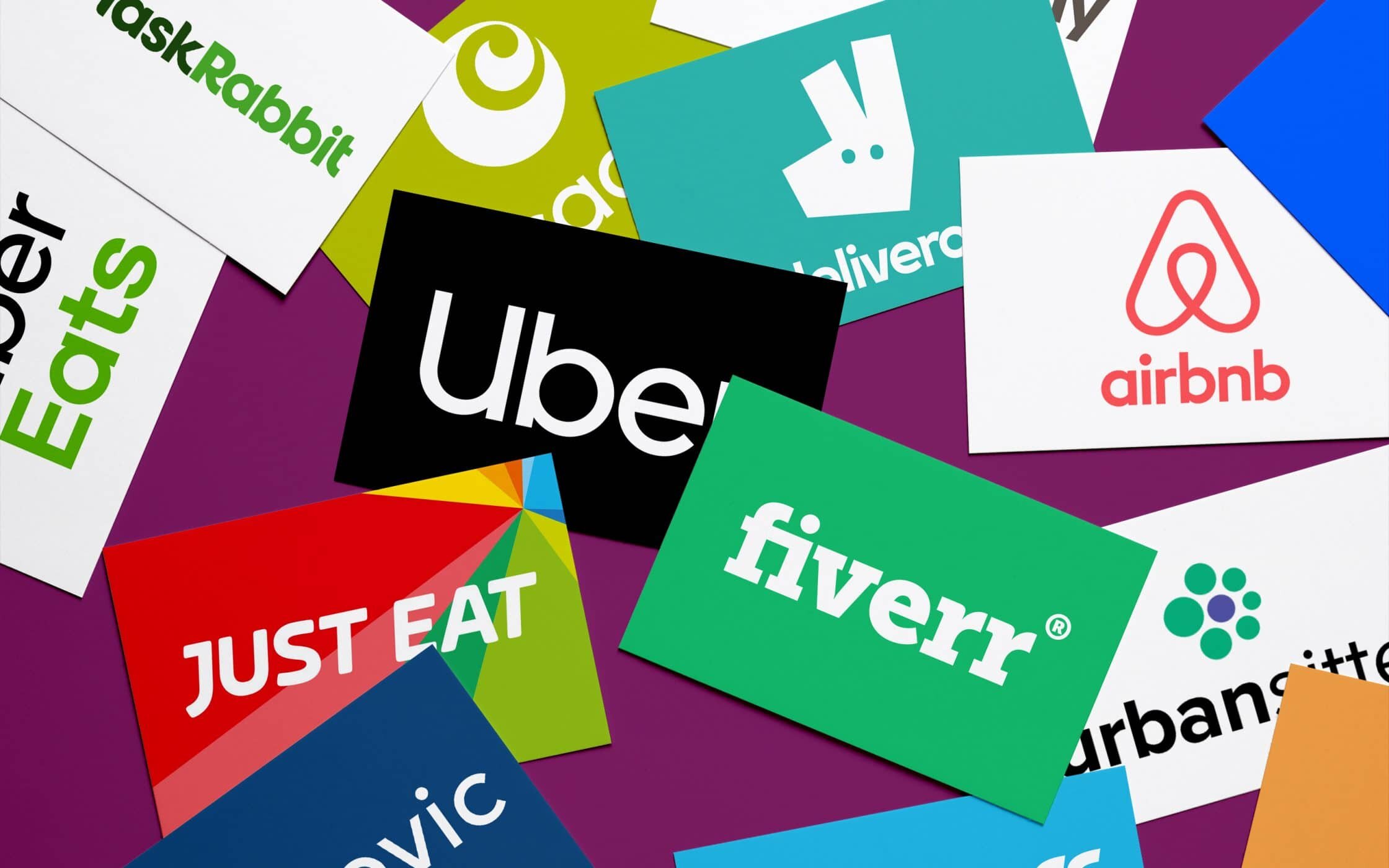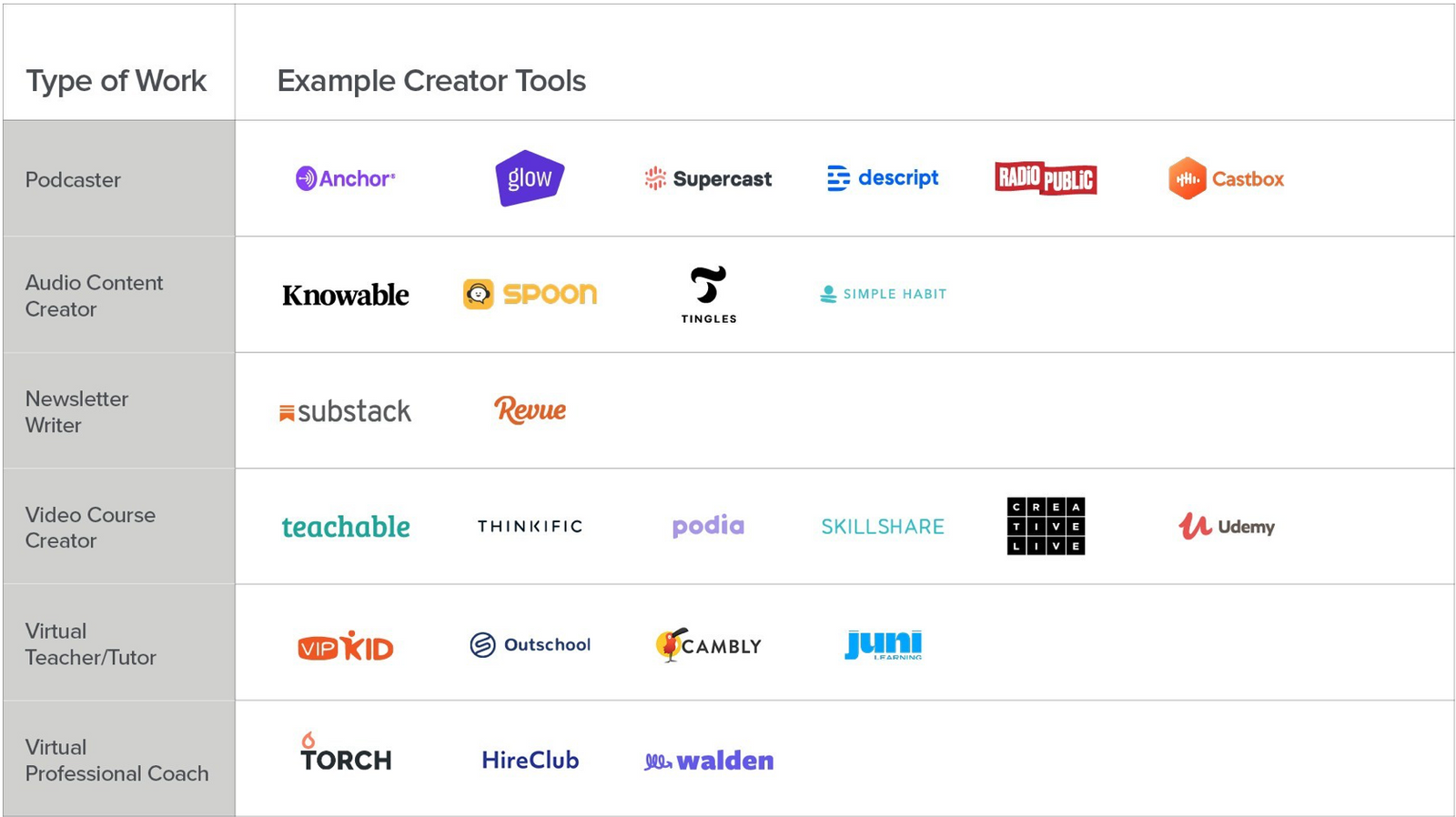
Bootstrapping: “to get (oneself or something) into or out of a situation using existing resources.”
MERRIAM WEBSTER
When building an organization or business, bootstrapping is growing with little or no venture capital or outside investment. This means you must rely on your own resources, software tools, people, and revenue to fund and sustain your project. Large, flashy venture backed startups may seem like the only way to launch a business, however, this road tends to be fairly risky and most people will fail.

Over the last decade there has been a massive increase in the number of small businesses that have started online. These include software companies, payment processors, and many e-commerce stores. Through these modules we hope to give you the adequate information and tools to begin bootstrapping your own business or organization!
Bootstrapping with LavaLearn will teach you by example by focusing on existing businesses and deconstructing their components to give you a better understanding of the tools they used and where you can go to learn them. Starting your own venture whether it is for-profit or non-profit can be intimidating. Luckily there is a plethora of information and software tools available to help you get started.
Companies that actually bootstrapped
Patagonia
At the young age of 18 Yvon Chouinard learnt the trade of the blacksmiths, and started making climbing pistons to better equip him to climb the famous walls of Yosemite national park. 13 years later in 1970 his small passion project turned company, Chouinard Equipment, had become the largest supplier of climbing gear in the United States. In 1972 his company began manufacturing clothing under the now popular, Patagonia. Starting with a love for the outdoors and a passion for improving people's experience in nature Chouinard built one of the most recognizable outdoor brands in the world.
GoPro
While Nick Woodman was traveling the world alone, he noticed that he was having a lot of difficulty recording his endeavors. He tinkered with many camera straps and stands but nothing seemed to work. This led him to create the concept of GoPro. After raising 100k selling shell belts out of his van, he created the first prototype of the GoPro and the rest is history. Even with limited resources Woodman was able to finance his project and create an amazing product.
GitHub
Tom Preston-Werner, Chris Wanstrath, and PJ Hyett started GitHub as a tool born out of necessity. As software engineers they realized that they didn’t have any way to share and discuss the gitcode they used for their software projects and jobs, and thus GitHub was born. As they were working their jobs, they added more features depending on the work they were doing. Soon many companies began paying for their platform to share code internally within their organizations. They built it all without any prior investment into their venture.
The Passion Economy
"There is no passion to be found playing small - in settling for a life that is less than the one you are capable of living."
Nelson Mandela
Most young people are familiar with the success of individuals on platforms such as YouTube, Instagram, and recently TikTok. However, there has been a massive wave of success for creators of high quality content and information. For example, the top Substack writer (service which allows you to create paid newsletters) earns over $500,000 a year, and the top Podia user (service which allows people to create paid online courses) earns over $100,000 a month.
These people may not be as famous as other content creators, but they have successfully built online businesses that make their living. These examples are part of a larger wave of people who have brought their talents and crafts online and leveraged the power of the internet to the businesses they wanted! This phenomena has been dubbed the “passion economy”. Whether you want to sell paintings online or start a website, there are plenty of tools and platforms to get you up off your feet.
The Gig Economy vs. The Passion Economy
The term “passion economy” may sound a lot like the “gig economy” and they are similar, especially with the enticing moniker of “being your own boss”. They do differ in some important aspects that makes the passion economy far more sustainable not only for the entrepreneur, but for the platform companies as well.

Popular Gig Economy Platforms
First is in the revenue models of each. Companies like DoorDash and Uber which embody the “gig economy” rely on one time revenue models. This means that for every ride they earn money as well as the drivers. This doesn’t enable either party to benefit from the compounding and network effects on revenue that the internet can have. Users sign up to be a part of the Uber network, but the only time anyone makes money is when they need a service on demand. Compare this to the ongoing revenue model of many passion economy businesses. Take Substack, the newsletter platform, for example. If a person who loves to write, creates one timeless post (a post that isn’t focused on the transient topics that are trending at the moment, but rather something the writer finds interesting, important, and readable whenever) every week, the value of their Substack increases exponentially with every post. As people stumble across your feed they will have a rich body of work to consume, and those who resonate strongly with it may subscribe!
The second way these two concepts differ is in the services they offer. Gig economy companies and workers usually work within the traditional service framework of the US economy. This means that they will usually be proximate to industries like transportation, fast food, and other low skill services that are mass distributed. This makes it easy for platforms like Uber and DoorDash to create a workforce, but not so lucrative for the people who actually work those jobs. Passion economy platforms and industries have much better aligned incentives. Take a platform such as GumRoad or Etsy, their business model is contingent on the success of their sellers, therefore the platforms themselves are designed to maximize the number of sales you make on them. Whereas gig economy businesses see paying contractors as a hindrance to obtain rides, passion economy platforms rely on their “contractors” to succeed. Thus the relationship between consumer and provider is much less muddled in passion economy businesses.
Finally the most important difference between gig and passion economy businesses is their compounding revenue effects and growing the businesses. If someone is an Uber driver and needs to increase their pay, they must increase their time spent on the platform and mileage on their car in order to complete more jobs. This means that their revenue increases in a fairly linear fashion. Compare this to someone on Podia, the video course creator platform, who can put a set amount of time and development into an online course and simply wait for people to purchase it every month. Through this model, passion economy creators are able to build once and sell twice.
Benefits of using the new platforms
- They’re accessible to everyone, not only existing businesses and professionals
- They view individuality as a feature, not a bug
- They focus on digital products, virtual services, and e-commerce
- They provide holistic tools to grow and operate a business
- They open doors to new forms of work
With the rise of the advertising and “influencer” business model in the 2010s it became increasingly clear that a decentralized content creation model was very lucrative not only for advertisers, but for creators as well. Since then the selection on online platforms and careers people can pursue has drastically increased. Previously only people with computer science degrees and software development backgrounds could dream of creating online businesses, but with the rise of no-code platforms such as Webflow, Shopify (an ecommerce platform), and Bubble (a powerful no-code website builder) this process has been democratized to creators.
These new platforms enable creators and entrepreneurs to build businesses online but focus on the products they are passionate about whether they be online courses, art, digital services, or content subscriptions. Through hard work and some creativity people can build sizable followings online who not only support their work through purchases but become “true fans” of your work.
New Platforms and New Careers

NEW DIGITAL PLATFORMS ENABLE FORMS OF WORK WE’VE NEVER SEEN BEFORE. IMAGE CREDIT: A16Z
If you would like to read more about the passion economy, check out this article ↗ by Andreessen Horowitz.
